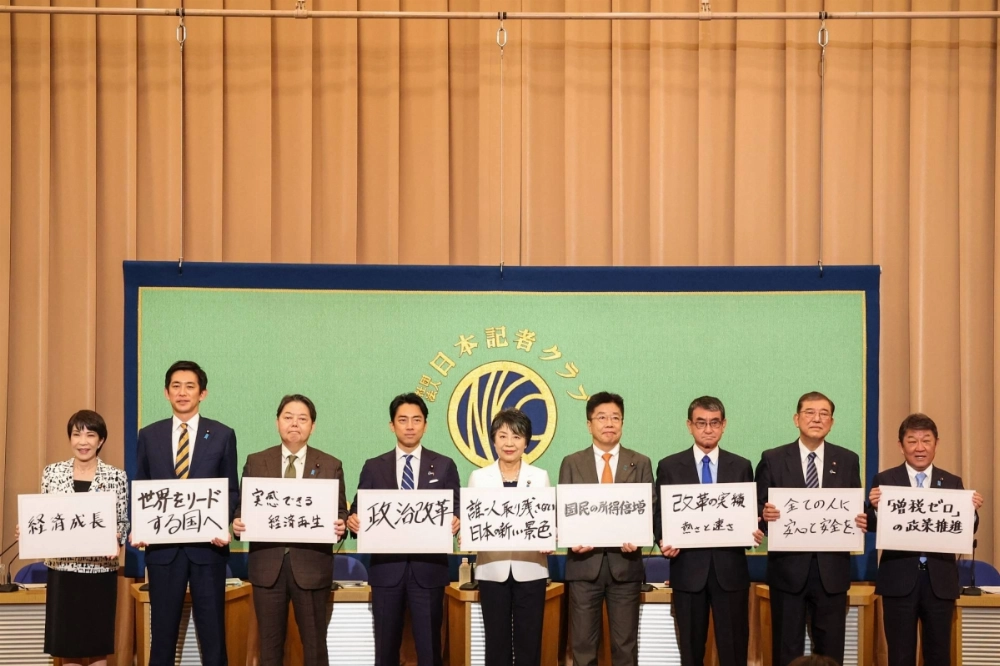The nine candidates vying to lead the ruling Liberal Democratic Party — and ultimately Japan — gathered over the weekend for a series of wide-ranging discussions on a number of issues, including Japan's relations with the U.S. and China, as well as how to restore public trust following a political funds scandal that has rocked the party.
With the LDP leadership election set for Sept. 27 and the U.S. presidential poll just weeks away on Nov. 5, the ruling party candidates, one of whom is almost certain to become prime minister, jostled over the best way to resolve Nippon Steel's contentious $14.9 billion bid for U.S. Steel, while also grappling with the challenge China represents to Japan.
In terms of U.S.-Japan relations, while the two country’s military alliance has soared to a fresh high, a decision by the White House on whether to block the sale of U.S. Steel over national security concerns has confounded Japan.


















With your current subscription plan you can comment on stories. However, before writing your first comment, please create a display name in the Profile section of your subscriber account page.